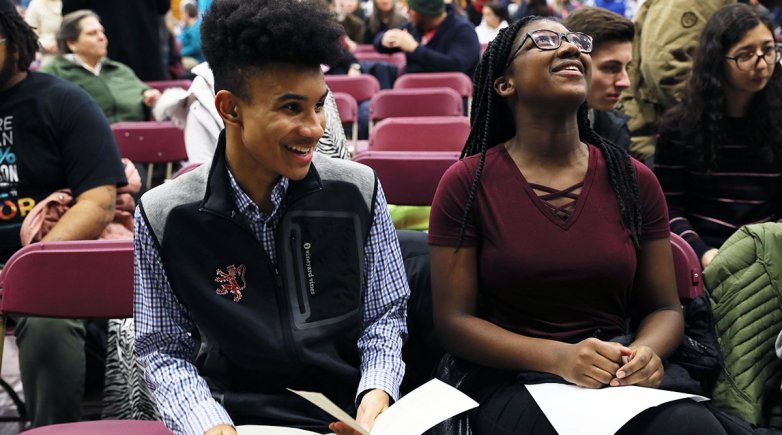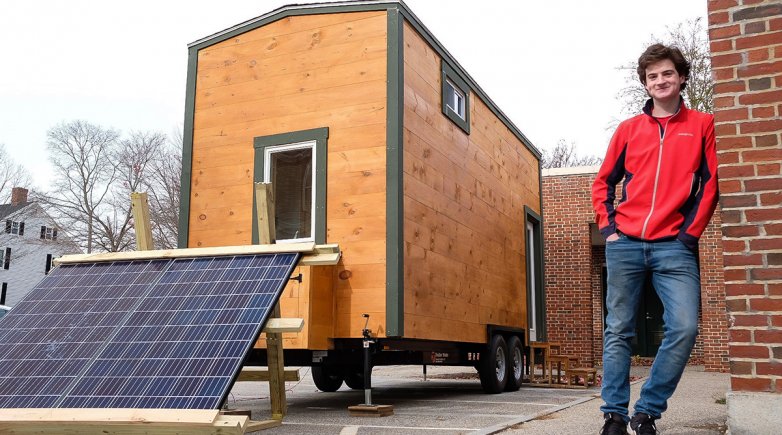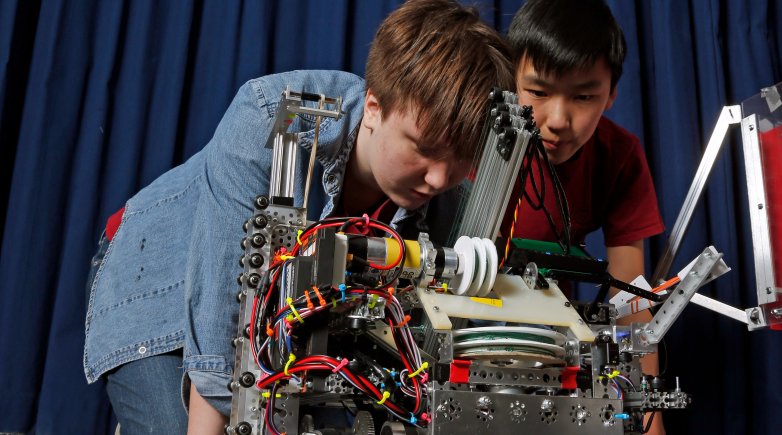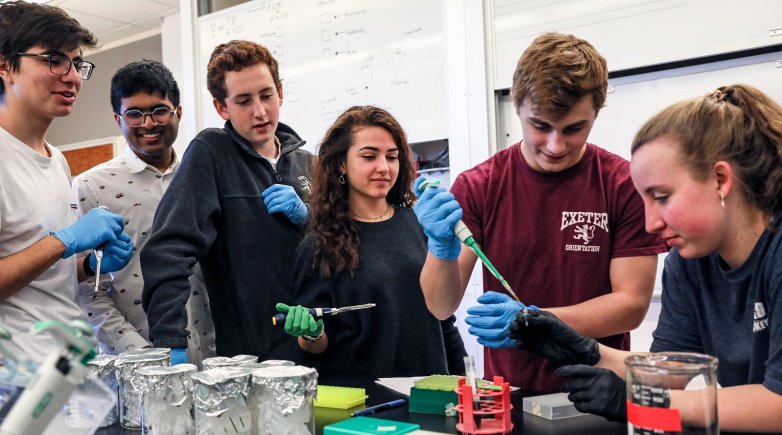The self-described “down-the-rabbit-hole political junkie” combined a recent affinity for podcasts and his mission to debunk the prevailing narrative to create “Precedented Times,” a six-episode podcast set to debut April 7. The project is Mims’ senior independent study, a program that allows Exeter students to explore areas of interest that fall outside traditional course descriptions. Seniors, with approval from the faculty, may design individual or joint projects of comparable value and scope to those of an academic course.
Other senior projects during the 2020-21 winter term include, among others, Luke Breen’s research of the local surfing culture in Rincon, Puerto Rico; Sophie Cavalcanti’s creation of an annotated bibliography on racism of books and movies in French and German; and Senai Robinson’s and Philip Horrigan’s investigation into the relationship 250 years ago between Exeter’s founders and slavery.
Each student works with a faculty member to shape their project and document their work, then presents their finished product at the conclusion of the term. Mims, who was advised by History Instructor Bill Jordan, played a trailer for the upcoming series and summarized his process to a remote audience over Zoom.
“If there’s one thing I’ve learned through the study of American history,” Mims recites in his trailer, “it’s that the United States has been through tons of difficult times before. And the more I dug, the more similarities I found between our past and our present.”
The time and resources poured into projects often exceed those dedicated to many senior-level classes, and Mims' project proved arduous. Originally intending to make 10 episodes, he soon realized the amount of research, writing and production for each episode would require him to temper his own expectations. Eventually, he chose six current issues or events to examine: the pandemic, the 2020 presidential campaign, racial and social upheaval, conspiracy theories, the influence of white supremacy and disputed election results.
“That became the essential drive of my podcast: To take an event from [2020] and relate it back to a similar event in American history,” he says.
Mims researched each topic extensively, then spent four to five days writing an episode. He then used an audio transcription program called Descript that allowed him create and edit each episode almost as one would a written document. Four of the six episodes are completed — at an average duration of 48 minutes — with two more in production.




